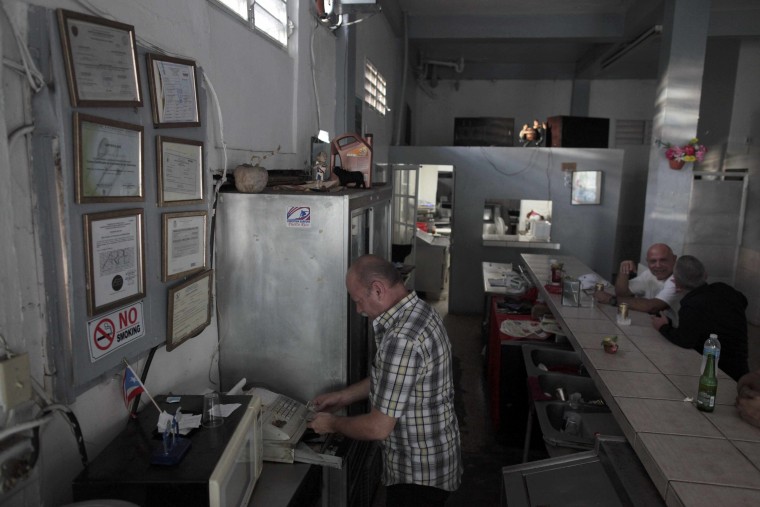A congressional task force wrapped up work on Puerto Rico’s economic crisis with a message to colleagues in Congress: start early next year fixing Puerto Rico's Medicaid funding.
The task force, made up of eight members of Congress from both parties, issued a number of recommendations in its report on re-starting Puerto Rico's economic growth.
The recommendation on Medicaid, the health insurance program for the poor, was one of the task force's key recommendations. It addresses an issue that long has been a source of complaint from Puerto Rico because the territory is treated differently in funding of the program than in U.S. states.
The island's Medicaid program has 1.4 million enrollees, about 40 percent of Puerto Rico's population, the task force said.
The report was required by the law known as PROMESA that was enacted this year to thwart the economic collapse of Puerto Rico, a U.S. commonwealth.
The task force determined that Medicaid in Puerto Rico is underfunded, compared to U.S. states. Medicaid underfunding “has been a meaningful factor contributing to Puerto Rico’s fiscal condition," the task force said.
Running out of money for Medicaid, or reaching what is often referred to as the Medicaid cliff, could be dire for the territory, the task force said, because Puerto Rico can no longer borrow money in the capital markets.
Puerto Rico will be “compelled either to drop hundreds of thousands of current enrollees from the Medicaid program (harming quality of life and spurring outmigration) or to reallocate funds from other areas" such as paying creditors or paying for public services, the task force stated in its report.
Members of the task force were Sens. Orrin Hatch, R-Utah, Bob Menendez, D-N.J., Marco Rubio, R-Fla. and Bill Nelson, R-Fla. and Reps. Sean Duffy, R-Wis., Tom MacArthur, R-N.J. and Nydia Velásquez, D-N.Y. and Pedro Pierluisi, Puerto Rico's resident commissioner in Congress, a Democrat.
In summer 2015, Puerto Rico Gov. Alejandro García Padilla sounded the warning that the island was in a fiscal “death spiral” because it was running out of money, was unable to meet payments on debt and was cutting public services to stay afloat. Congress also created an oversight board, separate from the task force, through the PROMESA Act. It is tasked with coming up with a fiscal plan and enacting some measures to get the island back on track.
The economic crisis has led to an exodus of Puerto Rico residents to the U.S. mainland. Puerto Ricans are U.S. citizens.
Related: Puerto Rico: Governor-elect Says Island Will Run Out of Money By February
Puerto Rico’s governor-elect Ricardo Roselló Nevares said Monday the country will run out of money by February to pay public employees.
Additionally, the oversight board sent a letter to García Padilla and Roselló Tuesday with a dire forecast: if no changes are made to the way Puerto Rico is operating, it will face a $67.5 billion budget gap the next decade.
That, the oversight board said, is the equivalent of every Puerto Rican family owing $54,000, or 2.8 times the average Puerto Rican median family income.
"In other words, unless action is taken, covering the enormous deficit would require the equivalent of EVERY Puerto Rican family having to pay $5,400 EVERY year over the next 10 years, for a total of $54,000 per family," the board stated in its letter.
In addition, the government would have to reduce costs and increase revenues or both to cover the annual budget shortfall of $7 billion and meet current obligations. Even if it were allowed legally to suspend debt payments, which it isn't, Puerto Rico would face an average annual budget shortfall of more than $3.2 billion, the letter states.
The letter lays out other issues. The oversight board asked in the letter that Roselló and his new administration establish a "high-level task force" in its first week to work on the fiscal plan the board and Puerto Rico government will work on. The board said it also will ask for a package of legislation and administrative reforms that can be quickly developed and considered by the U.S. territory's legislature by Feb. 15.

